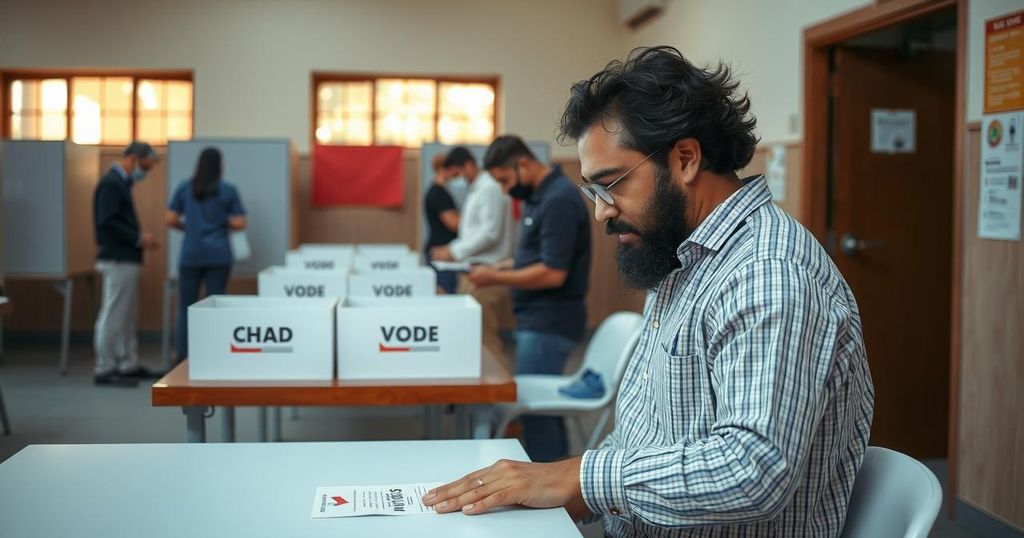Chad’s Elections: A Controversial Step Amidst Opposition Boycott

Chad conducted legislative and local elections on Sunday, framed by the government as a move towards democracy, though opposition parties criticized it as a “masquerade.” The elections follow a history of political unrest and significant humanitarian challenges, amid boycotts by dissenting voices accusing the regime of autocracy and suppression. Media coverage was notably restricted due to journalist protests against government constraints.
Chad held its legislative and local elections on Sunday, a significant event touted by President Mahamat Idriss Deby Itno’s government as an important step toward democratic transition. However, opposition parties have condemned the elections as a mere “masquerade.” This situation unfolds against a backdrop of persistent attacks from the jihadist group Boko Haram, the termination of a military agreement with France, and widespread allegations of interference in the ongoing conflict in Sudan.
Mahamat Deby, who assumed power in 2021 following the death of his father, Idriss Deby Itno, is viewed critically due to concerns surrounding democracy and governance. “Participating in the legislative elections under the current conditions is participating in legislative apartheid,” declared Succes Masra, leader of the opposition Transformers party, reflecting the sentiment among opponents who chose to boycott the elections.
The government, in its defense, suggests these elections will create a more diverse representation in the National Assembly and local councils, which have not seen elections since 2011 due to various postponements linked to security threats and other challenges. Despite the government’s assurances, critics argue that these elections aim to legitimize an entrenched autocratic regime.
As voting proceeded, it occurred amidst a media blackout, with journalists striking against government restrictions. The consequences of years of instability and poor governance are stark, with Chad ranking near the bottom of the United Nations Human Development Index. This year’s particularly severe rainy season has exacerbated existing difficulties, resulting in 500 fatalities and the displacement of two million individuals.
Chad has faced a complex political crisis that has evolved since the death of long-time ruler Idriss Deby Itno in 2021. His son, Mahamat Deby, assumed leadership, promising democratic reforms but facing accusations of autocracy. The nation has struggled with violent jihadist attacks, a challenging economic environment, and humanitarian crises exacerbated by climate-related disasters. The elections, positioned by the government as pivotal for democratic progress, have instead triggered opposition boycotts and widespread skepticism regarding their legitimacy, particularly in a climate of distrust and repressive policies.
In conclusion, the recent elections in Chad reflect a deeply divided political landscape, with significant opposition boycotts raising questions about their legitimacy. Amidst jihadist violence and humanitarian crises, the government’s portrayal of the elections as a step towards democracy starkly contrasts with the sentiments expressed by opposition leaders. The overall implications of the elections for Chad’s governance and political future remain uncertain, particularly given the unfavorable conditions under which they were conducted.
Original Source: www.barrons.com







